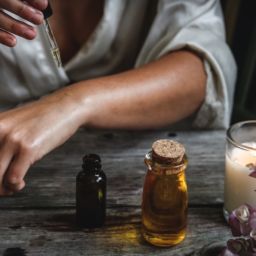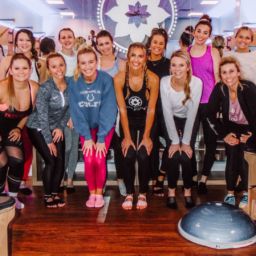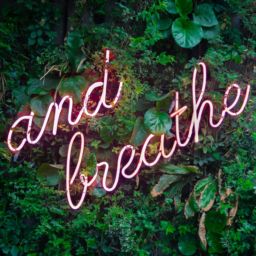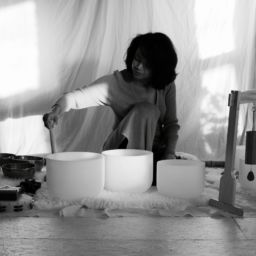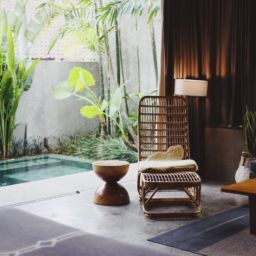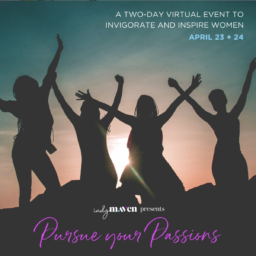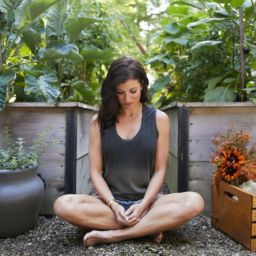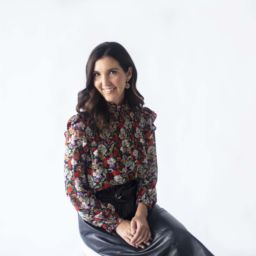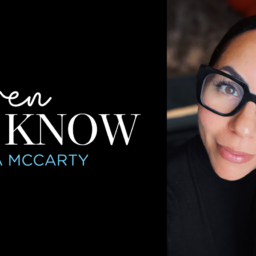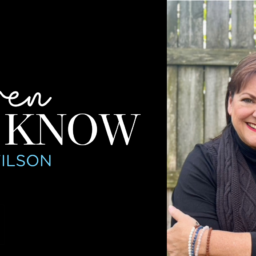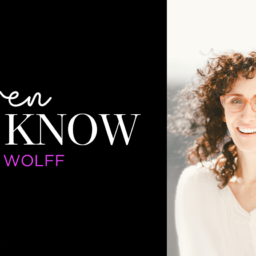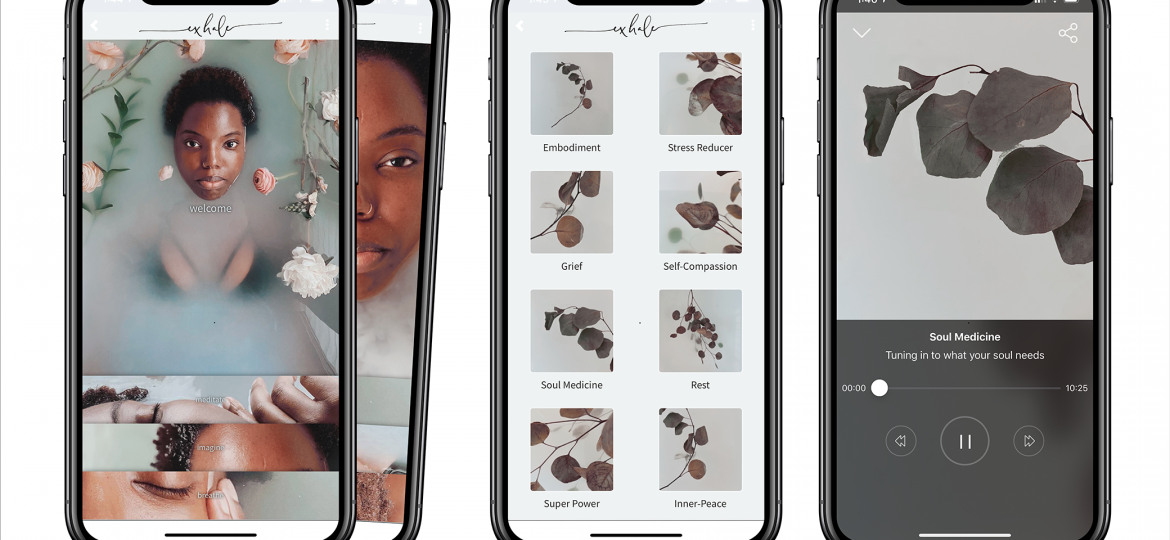
EXHALE is the first emotional well-being app designed specifically for and curated by Black, Indigenous women of color (BIWOC). The app features a gorgeous layout and five areas of well-being: breathe work, affirmations, meditations, guided visualizations (entitled “imagine” on the app itself, which got me excited), and coaching talks (entitled “listen”). To swipe through the app, one would think this was years in the making. I did, at least.
But this is an origin story unique to our times, and to the app’s creator, Katara McCarty.
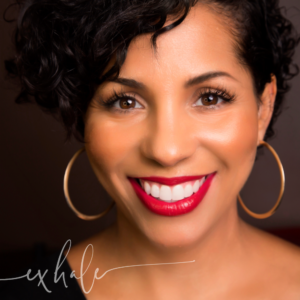 McCarty is an Indianapolis-based professional coach. As the pandemic and racial unrest simultaneously swept the nation in early spring, she found herself seeking out wellness rituals to cope with the violence. “Even watching the videos was traumatic for myself and my community. And I just felt helpless and hopeless.” She sought out meditation apps. They got her breathing… but none of them were created by BIWOC. They didn’t speak to her experience, her trauma, her pain.
McCarty is an Indianapolis-based professional coach. As the pandemic and racial unrest simultaneously swept the nation in early spring, she found herself seeking out wellness rituals to cope with the violence. “Even watching the videos was traumatic for myself and my community. And I just felt helpless and hopeless.” She sought out meditation apps. They got her breathing… but none of them were created by BIWOC. They didn’t speak to her experience, her trauma, her pain.
The wellness world is predominately white. But according to the EXHALE fact sheet: “Misogynoir, or misogyny specifically aimed at Black women, points to the specific ways Black women have experienced racism and sexism in this country. Black feminists like Moya Bailey and womanist blogs like Gradient Lair have worked to build the language around misogynoir so it can be readily named when pushing for political and social change.”
“I just got the idea,” McCarty explained, “what if [I] created, not a meditation app but a social well-being app and use coaching resources with meditation—coaching talk, coaching tips—specifically for BIWOC.” And when she says BIWOC she means all BIWOC—trans women, non-binary, gender non-conforming—everyone whose genders are repressed by racism and misogyny. “I made this for us by us and created a brave space that said, ‘You can show up here and know that I’m going to speak directly to your needs and to your hurt and your pain and to your oppression.”
She knew it wasn’t just an idea. It felt bigger than her; it felt like it was issued to her by her ancestors. The idea came in late April. The app launched in mid-August. That sort of turnaround isn’t the norm, by any means. McCarty created it on her own, with her own money. She wrote the meditations and narrated them herself. She’s not a coder; she’s not an app developer. She started Googling questions about how to build an app, and then she made it happen.
Green Records recorded all the content pro bono; her PR team also worked for free. (She paid the model and she paid her two grown daughters to photograph said model, as well as to record some of the content, which she had written herself). She plans to add other offerings, but doesn’t know what that will look like right now. The immediate focus: Put a (free) service out into the world for BIWOC as soon as possible.
What if one doesn’t identify as a BIWOC but is interested in wellness and interested in being led by BIWOC? Use this app as a window. McCarty borrowed the idea of “windows and mirrors” from Christine Platt, the Afrominimalist. BIWOC can use Exhale and see themselves reflected (or mirrored) back in it; white people can peer into a window to learn and observe from them. I peered through the window. I imagined my future self; I meditated on grief and I received coaching. I welcomed the guidance. I released some feelings. I exhaled.
McCarty casts a wide net and this isn’t her first foray into new endeavors. In fact, that seems to be her niche. She previously spent 16 years in the non-profit world: co-founding and co-pastoring God’s House with her husband in Martinsville, IN; co-founding Ceelelo School in Zambia, Africa; and co-founding The Center for Success, an organization focused on underestimated children. She also has a podcast, “Red Lips & Eye Rolls” (might I suggest starting with Episode 41: Becoming a Good Ancestor with Layla F. Saad, then binge listen to the rest and hit subscribe). The podcast aims to “give you tools to belong to yourself but also to cultivate cultures where Black, Indigenous, and Women of Color belong. [Her] mission is to curate this space so that it centers Black and brown women, their voices, wisdom, talents, businesses, art, and more.” In addition to all that, McCarty wrote a children’s book entitled “Pretty Girl” (the website states “this book teaches girls to celebrate their uniqueness, to love the skin they are in, and to honor and accept others even though they might be different.”)
Guess what my daughter is getting for her birthday?
Maura Malloy is a writer, actor and one-time Tedx Talker living in Indianapolis.









